If your dog has recently undergone a neuter surgery and is now swelling two weeks later, you may be wondering if this is normal. Swelling after surgery is common, but it can vary depending on the individual dog.
In this blog post, we will discuss the causes of swelling after neutering and what you can do to help your dog feel better.
Key Takeaway
- Neuter surgery, also known as castration, is a surgical procedure performed by a veterinarian that involves the removal of a male dog’s testicles to prevent reproduction.
- While some swelling is expected post-neuter surgery, persistent swelling two weeks after the procedure may indicate complications such as an infection or scrotal hematoma and should be evaluated by a veterinarian.
- Typically, it takes approximately two weeks for a dog to fully recover after a neuter surgery, but this can vary depending on the dog’s age and overall health.
What is Neuter Surgery?
Neuter surgery, also known as castration, is a common veterinary procedure that involves the removal of a male animal’s testicles to prevent reproduction and reduce certain unwanted behaviors.
As a veterinarian, I’ve performed countless neuter surgeries. The procedure begins with the administration of general anesthesia to ensure the animal feels no pain during the surgery.
Once the animal is asleep, a small incision is made in front of the scrotum, through which the testicles are removed. The spermatic cord, which supplies blood to the testicles, is tied off to prevent bleeding.
The skin incision may then be closed with sutures or left to heal naturally, depending on the specific situation.
Neutering has several benefits beyond preventing an animal from fathering puppies. It can also reduce the risk of certain health problems, such as testicular cancer and prostate disorders.
Additionally, it often reduces unwanted behaviors that are driven by male hormones, such as marking territory with urine, roaming in search of females, and some forms of aggression.
Is It Normal For Dogs To Swell Two Weeks After Neuter?
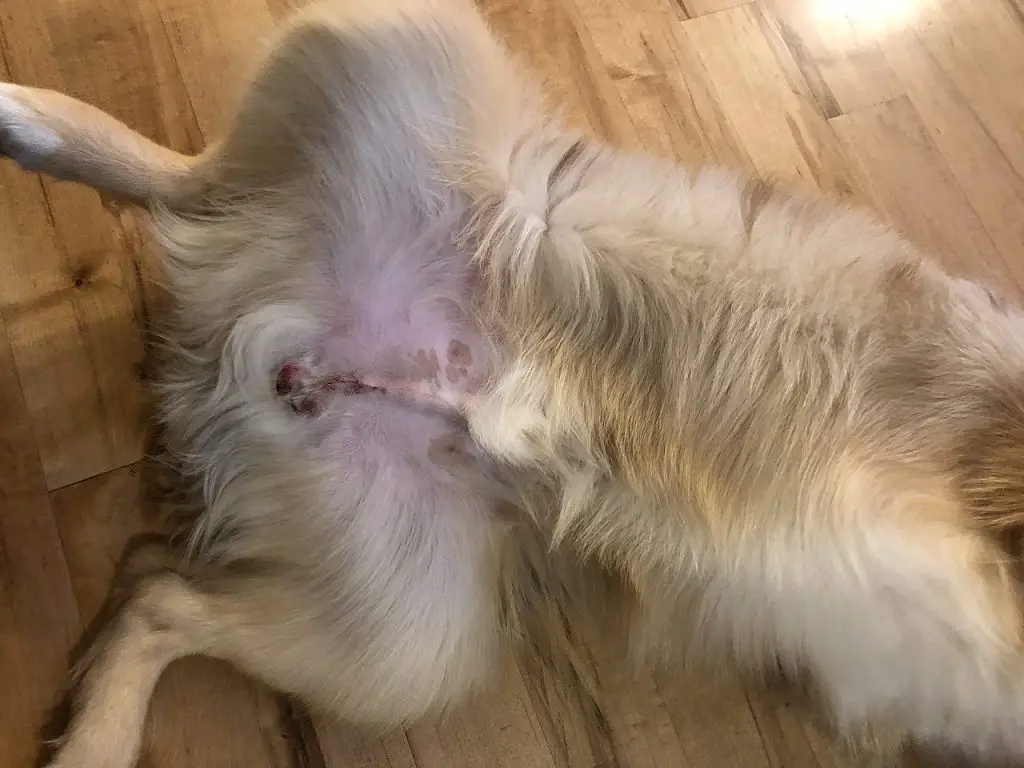
While some swelling after neutering is normal, it should typically subside within a few days to a week, so persistent swelling two weeks post-surgery could indicate complications such as infection or hematoma and should be evaluated by a veterinarian.
After a dog is neutered, it’s normal for the scrotum to appear full or even normal size due to post-operative swelling, but this should be reduced within 24-48 hours after surgery.
If the swelling persists beyond this period, it could be due to various reasons such as an infection at the incision site, which can occur if the dog has been licking or scratching the area excessively, or due to internal bleeding or hematoma.
In my years of experience as a veterinarian, I’ve seen cases where dogs continue to show signs of swelling two weeks post-neuter.
However, this isn’t the norm and it’s crucial to monitor your pet closely during the recovery period. Any prolonged swelling, especially if accompanied by other symptoms like redness, pain, or discharge, should be addressed promptly with a vet to rule out complications.
How Long Should My Dog Be Swollen After Neutering?
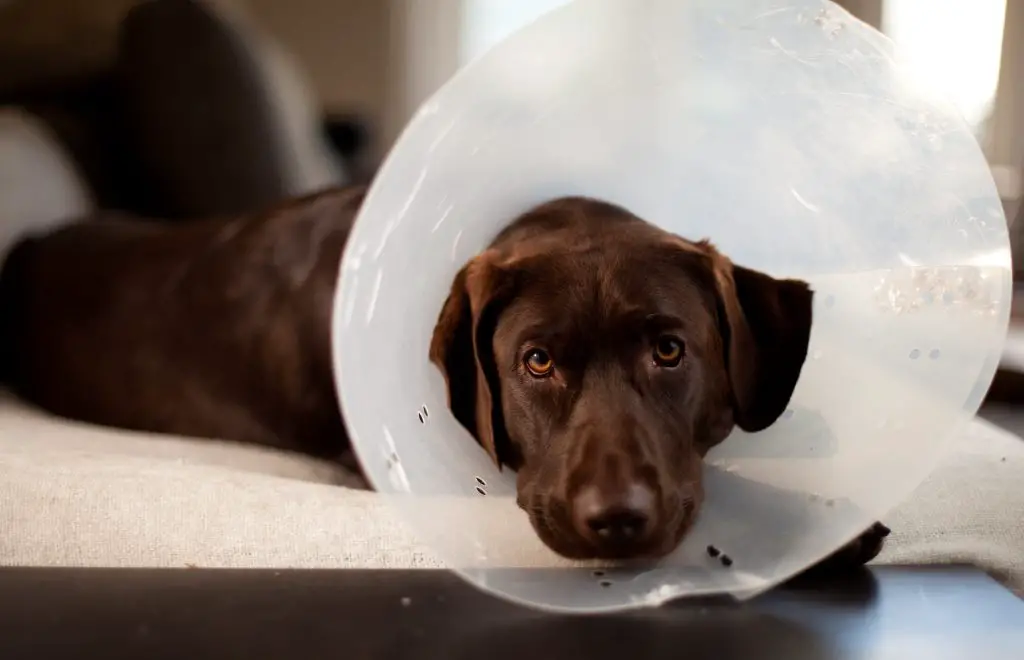
Typically, swelling after a dog’s neutering procedure should subside within a few days to a week.
Post-neutering, it’s normal for your dog to experience some swelling. This is a part of the body’s natural response to surgery, and it can cause the scrotum to appear fuller or even normal size immediately after the operation.
However, this swelling should begin to decrease within 24-48 hours post-surgery and completely subside within a week under normal circumstances.
In my years as a veterinarian, I’ve seen this timeline hold true in most cases. However, if you observe that the swelling persists beyond a week, it’s important to consult with your vet.
Persistent swelling could be indicative of complications such as infection at the incision site, excessive licking or scratching by the dog, or internal bleeding, all of which require medical attention.
Remember, it’s always better to err on the side of caution when it comes to your pet’s health. If you feel something isn’t right, don’t hesitate to reach out to your vet. After all, you know your furry friend best says Cuteness.
How Long Does It Take For a Dog To Recover After a Neuter?
The recovery time for a dog after a neuter surgery typically spans between 10 to 14 days, during which the pet should be closely monitored and activity should be restricted to aid healing.
Post-neuter surgery, most dogs will show signs of recovery within a few hours to a day. However, as a veterinarian, I recommend a recovery period of about 10 to 14 days. This is the time it usually takes for the incision to heal significantly enough to resume normal activities.
During this recovery period, it’s essential to restrict your dog’s activity. Even if your pet seems back to their usual self within a day or two, they should not be allowed to run, jump, or engage in rough play, as these could disrupt the healing process and lead to complications such as bleeding or infection.
It’s also crucial to keep the incision site clean and dry. Regularly check for signs of infection, such as redness, swelling, discharge, or the dog showing discomfort when the area is touched. Any of these could indicate a problem that needs immediate veterinary attention.
While your dog is recovering, use an Elizabethan collar or similar device to prevent them from licking or chewing at the incision, as this can also lead to complications says PennyPaws.
How Can You Tell If a Neuter Is Infected?
Signs of an infected neuter site in dogs can include persistent swelling, redness, discharge, pain, and the dog acting unwell or unusually lethargic.
1. Foul-smelling discharge
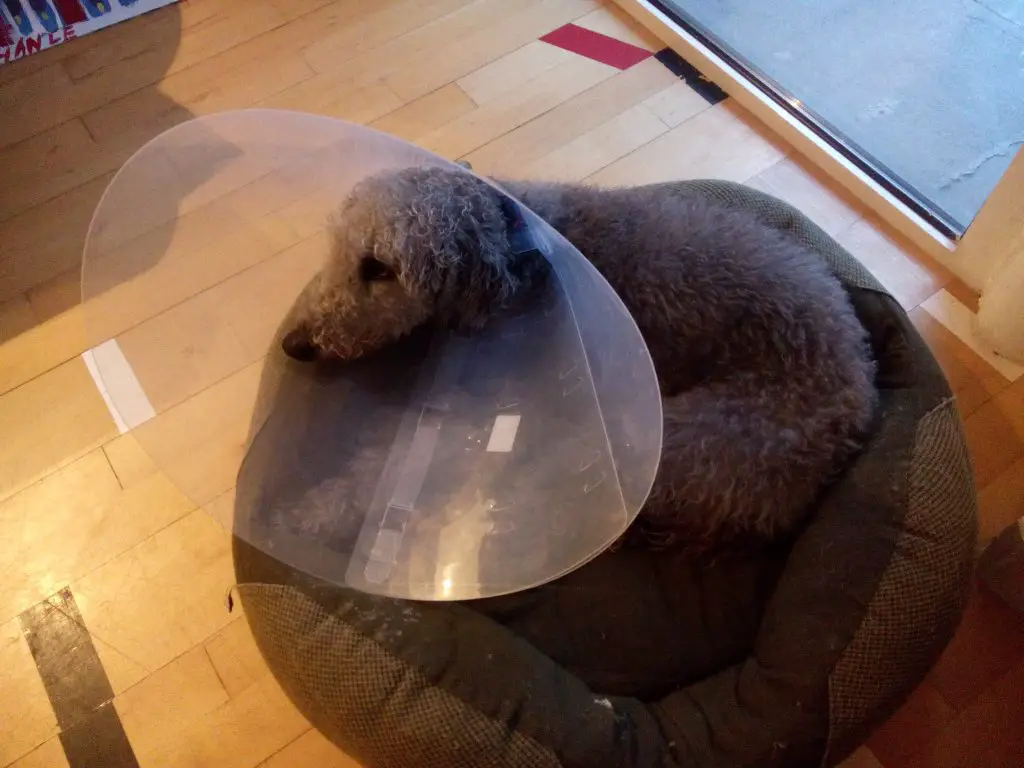
A neuter is a surgical procedure performed on male animals to remove their reproductive organs. While the surgery is generally safe, there is always a risk of infection.
One way to tell if the neuter is infected is by looking for a foul-smelling discharge. This discharge may be accompanied by redness, swelling, and pain at the incision site.
If you notice any of these signs, it’s important to take your pet to the vet as soon as possible. Left untreated, infected neutering can lead to serious health complications. With prompt treatment, however, most pets make a full recovery.
2. Lethargy
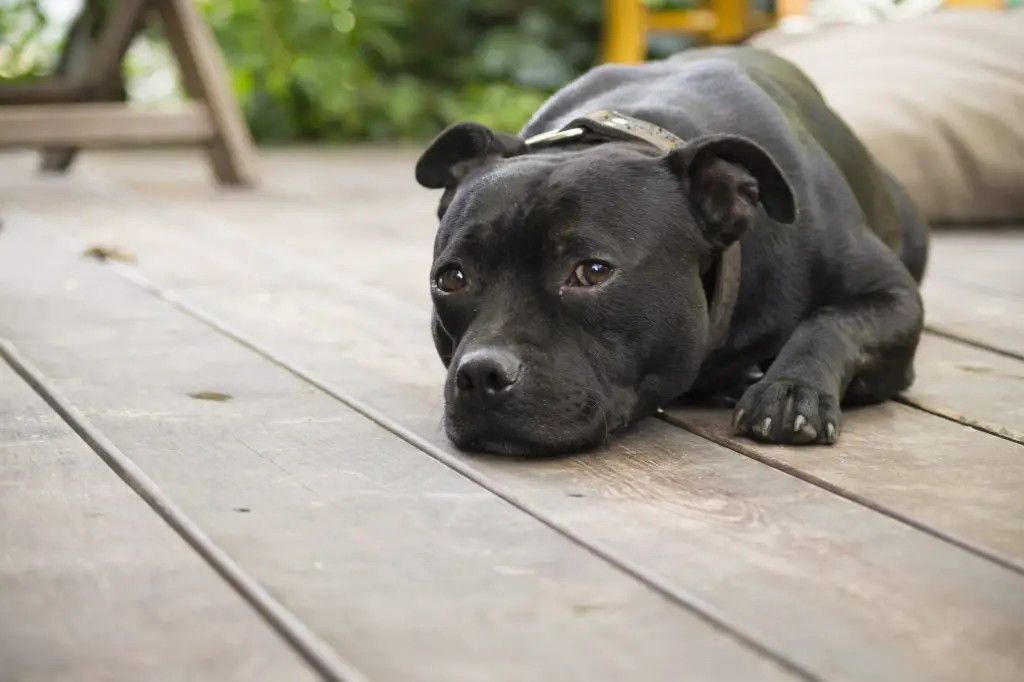
After your dog is neutered, it’s important to keep an eye on the incision site and look for any signs of infection. The first step is to check the incision site for any redness, swelling, or discharge. If you notice any of these signs, it’s important to contact your veterinarian right away.
Another way to tell if an infection is present is by your dog’s behavior. If they are acting lethargic or seem to be in pain, this could be a sign that something isn’t right.
Lethargy is a condition characterized by a lack of energy and motivation. A dog with lethargy may be reluctant to move, play, or exercise. Lethargy can be caused by many different factors, including underlying medical conditions, pain, medications, and emotional distress.
3. Fever
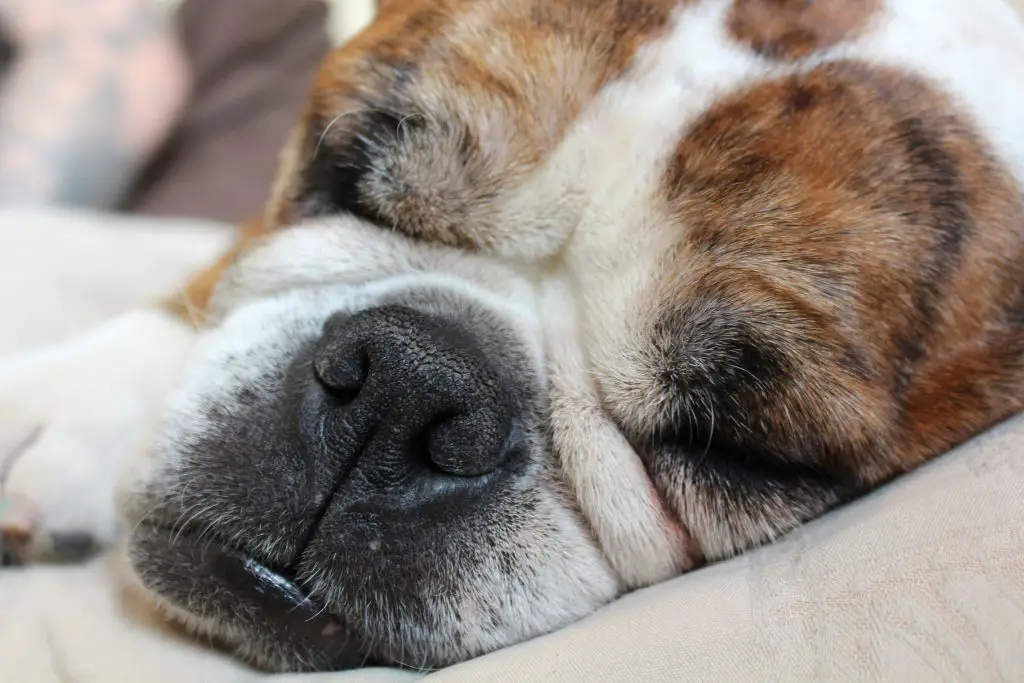
If your dog has been neutered and you notice that his temperature is elevated, it’s important to take him to the vet right away. While a small increase in body temperature is normal immediately following surgery, anything over 102 degrees Fahrenheit is cause for concern.
In addition, your dog may be listless and have no appetite. If he is displaying any of these signs, it’s important to have him checked out by a professional. With prompt treatment, most cases of post-operative infection can be resolved without any lasting effects.
4. Loss of appetite
If your neutered dog has lost its appetite, this could be a sign that the incision is infected. Other signs of infection may include swollen lymph nodes, fever, and lethargy. If you notice any of these symptoms, take your dog to the vet as soon as possible.
The vet will likely prescribe antibiotics to clear up the infection. In some cases, surgical drainage may also be necessary.
With prompt treatment, most dogs make a full recovery from an infected incision. However, if the infection is left untreated, it can lead to serious complications such as sepsis. Therefore, it is important to be aware of the signs of an infected incision and to seek veterinary care if your dog shows any signs of illness.
Is It Normal For a Dog To Have a Lump After Being Neutered?
While a small, firm lump under the skin at the incision site can be normal following neutering due to the body’s healing response, a large or growing lump may be a cause for concern and should be examined by a veterinarian.
Post-neutering, it’s not uncommon for your dog to develop a small, firm lump under the skin at the incision site. This is usually due to a reaction from the body’s immune system as it heals, often referred to as a suture reaction.
These lumps are typically small, non-painful, and will gradually decrease in size over several weeks as the tissues heal.
In my years of veterinary practice, I’ve observed that these lumps are generally not a cause for alarm and are a part of the normal healing process.
However, if the lump seems to be getting larger, causing discomfort to your dog, or is accompanied by other signs such as redness, heat, or discharge, or your dog seems unwell, it’s crucial to consult with your vet immediately.
These could be signs of complications, such as infection, seroma (a pocket of fluid), or hematoma (a pocket of blood). The appropriate treatment will depend on the specific cause, which is why professional evaluation is necessary.
Always remember, you know your furry friend best. If something doesn’t seem right, don’t hesitate to reach out to your vet. We’re here to help ensure the health and well-being of your pet.
How Can I Help Reduce Swelling After My Dog’s Neuter Surgery?
To help reduce swelling after your dog’s neuter surgery, ensure your pet rests adequately, prevent them from licking the incision site, apply cold compresses if advised by your vet, and administer any prescribed medications.
Ensure Adequate Rest
One of the most effective ways to minimize post-operative swelling is to ensure your pet gets plenty of rest. In my practice, I’ve noticed that dogs who are allowed to run around or play too soon after surgery often experience more swelling and slower healing. Therefore, restrict your pet’s activity for at least a week or two after the surgery, even if they seem to be feeling well.
Prevent Licking or Chewing
Preventing your dog from licking or chewing at the incision site is also crucial. This behavior can introduce bacteria into the wound and cause inflammation and infection, leading to increased swelling. An Elizabethan collar or similar device can be very helpful in preventing this.
Use of Cold Compresses
In some cases, applying a cold compress to the incision site can help reduce swelling. However, this should only be done if recommended by your vet, as inappropriate use can cause more harm than good. If your vet does advise this, they will provide specific instructions on how and when to apply the compress.
Administer Prescribed Medications
Finally, make sure to administer any medications prescribed by your vet as directed. These may include pain relievers, anti-inflammatories, or antibiotics, all of which can help reduce swelling and promote healing.
When To Seek Veterinary Assistance For Swollen Incision Site
Veterinary assistance should be sought for a swollen incision site if the swelling persists beyond the first two to three days post-surgery, increases over time, or is accompanied by other signs of infection such as redness, heat, discharge, or discomfort.
In my years of veterinary practice, I’ve seen that it’s normal for an incision to show some degree of redness and swelling in the first few days following surgery. This is simply the body’s response to the trauma of surgery and should gradually subside as the healing process progresses.
However, if the swelling does not lessen after two to three days, or if it seems to be getting worse, this could indicate a problem. Similarly, if the swelling is accompanied by other signs of infection – such as redness, warmth, discharge, or if the dog appears to be in pain when the area is touched – these are clear indicators that veterinary assistance should be sought immediately.
It’s also crucial to monitor the pet’s overall behavior and well-being. If your dog seems lethargic, refuses to eat, or shows other signs of being unwell, these could be symptoms of a systemic infection requiring urgent veterinary attention.
FAQs
Q: Is swelling after neuter a sign of infection?
A: In most cases, swelling after neuter is not a sign of infection. It is a normal part of the healing process and usually resolves on its own within a week or two. However, if you notice any signs of infection such as redness, pus, or a foul odor from the incision site, it is important to contact your veterinarian.
Q: Should I be concerned if my dog’s incision is swollen?
A: A small amount of swelling around the incision is normal. However, if the swelling is excessive, accompanied by redness or discharge, or if your dog appears to be in pain, it is best to contact your veterinarian for further evaluation.
Q: What should I do if my dog keeps licking the incision?
A: If your dog keeps licking the incision, it is important to prevent them from doing so to avoid causing further irritation or infection. You can use an e-collar or cone to prevent your dog from reaching the incision site. If the licking persists, consult your veterinarian for additional guidance.
Q: Is it normal for female dogs to swell after spay?
A: Yes, it is normal for female dogs to experience some swelling after being spayed. Swelling around the incision site and the area where the ovaries and uterus were removed is common and should gradually subside within a few days to a week.
Q: What are the signs of infection after neutering?
A: Signs of infection after neutering may include redness, swelling, warmth, discharge, foul odor, and excessive pain around the incision site. If you notice any of these signs, it is important to contact your veterinarian for further evaluation and treatment.
Q: When should I be concerned about the swelling after my dog’s neuter?
A: While some swelling is normal after neuter surgery, there are certain circumstances when you should be concerned. If the swelling is excessive, continues to increase in size, is accompanied by signs of infection, or if your dog is experiencing severe pain or discomfort, it is best to contact your veterinarian for advice and possible examination.
Conclusion and final thoughts
In conclusion, swelling in dogs after being neutered is a common occurrence and is considered to be normal.
However, it is always important to monitor the swelling and consult with a veterinarian if there are any concerns or if the swelling persists for more than two weeks.
Proper post-neuter care, including rest and limited activity, can help reduce the chances of excessive swelling.

